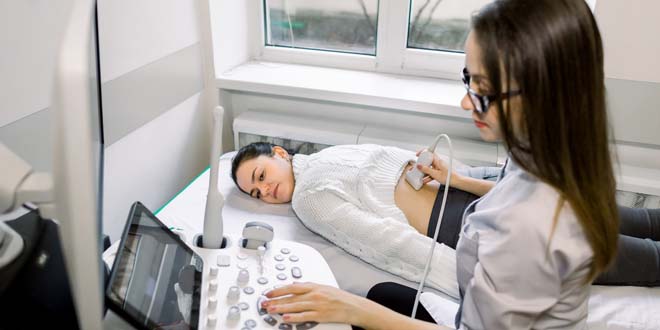
Whether it’s a constant urge to urinate or leaks when you least expect it, bladder control issues are a common complication of diabetes that’s not often discussed. Given that the research shows more than 50% of people with diabetes deal with some sort of bladder dysfunction, it should be part of the diabetes discussion. In fact, equipped with the facts, and working with your healthcare provider, there are ways to tackle diabetes and bladder control issues so you can feel confident and in control.
Why are bladder control problems more common in people with diabetes?
When blood sugar is elevated, it can affect the nerves, blood vessels and muscles that enable the bladder to function properly. High blood sugar can also trigger thirst which can lead to more frequent urination.
Some medications (e.g., anticholinergics and opioids), can also lead to constipation because they slow the speed at which food travels through the gut. The bladder and bowel share many of the same nerves and pelvic floor muscles. When the rectum is full of stool, it can press against the bladder, reducing its capacity and making it harder to control the urge to urinate.
How does high blood sugar affect bladder function over time?
When blood sugar remains elevated for extended periods of time, it can permanently injure the nerves that control bladder sensation and muscle movement. This condition, called diabetic neuropathy, can affect other parts of the body too.
When blood sugar is high for extended periods, the kidneys also work harder to filter and excrete the excess sugar, producing more urine. This leads to frequent urination and, in some cases, dehydration—both of which can aggravate bladder control problems. If urine remains in the body too long, it can contribute to kidney or bladder infections.
What are the warning signs of a bladder control problem?
Here are key indicators that there could be an issue:
- Overwhelming and frequent urges to urinate during the day or night
- Urine or bowel leaks while laughing, coughing or having sex
- Not being able to make it to the toilet on time
- Feeling pain when urinating
- Difficulty emptying your bladder
- Bed wetting
- Frequent urinary tract infections
When should you discuss bladder control problems with your healthcare provider?
Be sure to consult one of your diabetes healthcare providers if you are experiencing any of the symptoms noted above, especially if they are impacting your daily activities and comfort.
What tests can help diagnose bladder control problems?
Your healthcare provider may ask you to keep a bladder diary to track the types and amounts of fluid you’re drinking, as well as the frequency and duration of urination daily. They will likely use blood and urine tests to rule out other issues such as urinary tract infections, and may do urodynamic testing to measure the pressure, volume, and flow of your urine.
Are there treatment options available?
Getting blood sugar under control can help in addressing bladder control issues. Bowel training, including pelvic floor exercises (e.g., Kegel exercises) can help increase time between restroom visits too.
There are also prescription medications that can reduce urgency, frequency and overactive bladder, as well as treat underlying conditions (i.e., urinary tract infections) that are contributing to bladder issues. Laxatives can be used to relieve short-term constipation.
In cases where these methods have failed, there are medical procedures and surgical options for dealing with bladder control problems. Be sure to speak to your healthcare provider to determine the best course of action for you.
Do lifestyle changes help improve bladder control?
Yes, losing weight can help address bladder issues as obesity can put more pressure on the pelvic floor and bladder which can inhibit your ability to control your urine.
Not smoking, along with following a healthy diet with plenty of fibre and fluids can also improve bladder control as it helps to regulate bowels and keep stools at the right consistency. For keeping hydrated daily, water or herbal teas are best as caffeine, fizzy drinks and alcohol can irritate the bladder and elevate your blood sugar.
Read more on how to stick to a healthy diet, as well as 10 diabetes snacks.
Is there a way to prevent bladder control problems?
Keeping your blood sugar levels in check is the best way to prevent nerve damage that can lead to bladder control problems. Sticking to a healthy meal plan and getting regular exercise will also contribute to keeping your blood sugar levels in check.
Remember, bladder control issues are nothing to be embarrassed about when you have diabetes. By reporting any urinary changes to your healthcare provider early on, you can help address problems before they become more serious.



